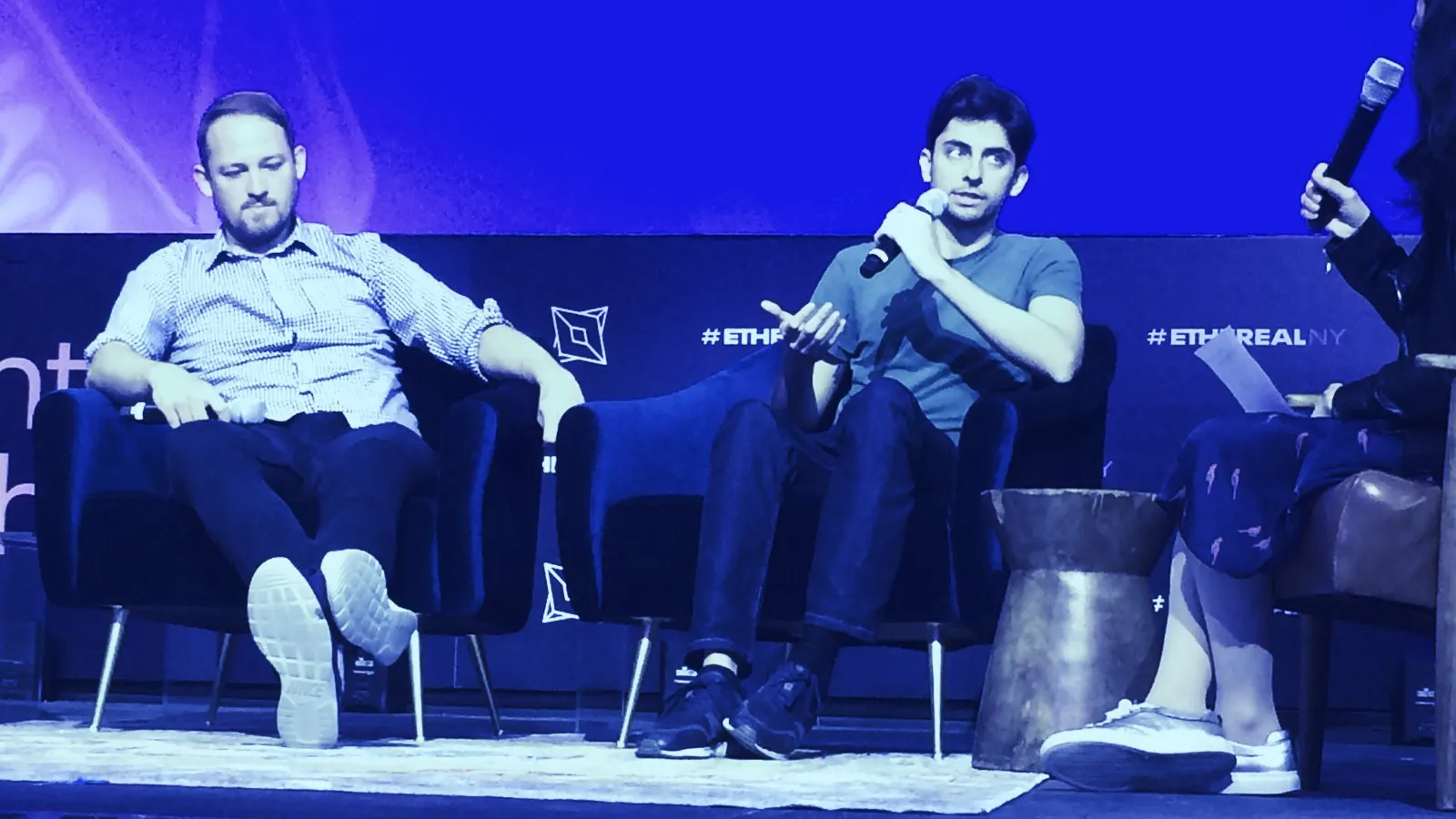We do the research, you get the alpha!
NEW YORK—Good luck, Facebook: Developers striving to make blockchain technology accessible to the average user say the social network's own blockchain gambit isn’t a threat—indeed, the tech behemoth faces the same struggles Ethereum developers do.
Speaking on the main stage at Ethereal, Burner Wallet creator Austin Griffith said Facebook’s plans to serve its two billion users with its own cryptocurrency payments network, dubbed project Libra, would need to overcome the same UX problems Ethereum developers are trying to fix.
“If they run like we do,” he said. “They’ll have to worry about block time, key pairs.”
Burner Wallet is a digital wallet designed to “abstract away” UX complexities that alienate users. The wallet, which runs on a sidechain of the Ethereum network, comes preloaded with funds and doesn’t require a user to enter a seed phrase, commit to memory a cryptographic key, or any of the usual fripperies that make playing with dApps more akin to operating the Hubble telescope.
ETHDenver was abuzz with its first iteration, the BuffiDAI, and now Ethereal attendees are using the app to buy from food trucks and participate in an in-app prediction market. Facebook, he said, should be trembling before Burner Wallet’s revolutionary simplicity.
“Are they gonna hit the user with a wallet download?” he said. “If they hit users with the same things. they’re gonna see the same drop-off we see. They’ll find if they try to get users to have to download something and they hit them with a seed phrase up front, they’ll lose users.”
Arjun Bhuptani, the co-founder of Connext network, said the smaller startups building on Ethereum had experience—and history—on their side. “Small startups beat big companies all the time,” he said. Connext network is similar to Burner Wallet, but runs on the Ethereum network proper, using “state channels” that support a higher transactional load.
Both developers have gone to great lengths to account for the problems that have so far repelled the majority of users from dApps and blockchain-powered platforms. Before Griffith launched his Burner Wallet at ETHDenver, he said, “We would just go to bars in Northern Colorado and drop paper wallets on people.”
They would learn things, quickly. “One of the buttons was too far from thumb,” he recalled. So they moved it.
“Most of the early testing [for Connext] was done with my mum’s friends,” agreed Bhuptani. Testing it with non-technical family required a “low cognitive overhead.”
Another theory: even in this neophyte industry, Facebook is an honest-to-god newbie. Startups on platforms like Ethereum have close-knit communities of users and years of technical iteration behind them. In some cases, such startups will freak out large companies like Facebook, and get acquired as the incumbent attempts to nip the competitor in the bud.
“Other times they beat them and the large company dies,” he said.
Bhuptani also speculated that Facebook would face regulatory concerns, jurisdiction by jurisdiction, and founder in the face of a prolonged period of regulatory scrutiny. Indeed, Facebook is already facing demands from US senators to thoroughly explain its payment model, amid fears the company may again be playing fast and loose with potentially dangerous technology.
Hopefully, Bhuptani said, “Ethereum and other projects that are decentralized will work the same everywhere. Facebook and the things they’re building on that may not. And that’s the big difference.” Indeed, like the TCP/IP protocol that undergirded the early internet, upon which the Gatekeepers built their present-day money spinners, open source systems like Ethereum have durability, whereas siloed networks like Facebook limit what is possible.
"They allows for exponentially compounding innovation to happen on top of them," said Bhuptani.
Of course, Facebook does have one rather large advantage: it’s centralized. But Griffiths, though not wanting to go against the industry’s entire “ethos,” said that Ethereum apps could make up the difference by injecting harmless doses of centralization into their own products—just to begin with, anyhow.
“It seems there’s a spectrum of decentralization,” he said. “You can ease them into it. It’s ok to have a little bit of centralisation at the start. It’s ok to have a little bit of, a softer version of what we have.”
And then, before Facebook knows what’s hit it, you fully decentralize.





